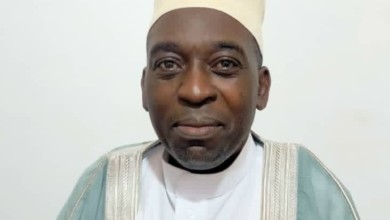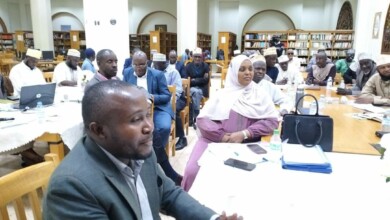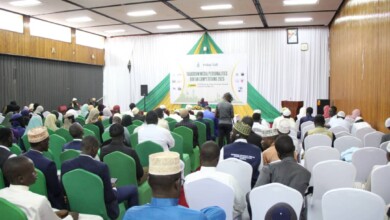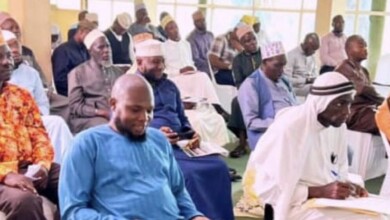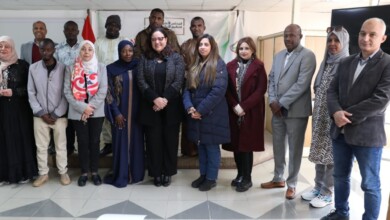
The involvement of the retired Bishop of California, William E. Swing to develop a curriculum for Islamic theological schools (Madarasas) has stirred up.
According to his Linkedin profile, Swing is the founder and president of the United Religions Initiative (URI), a global community committed to promoting enduring, daily interfaith cooperation and ending religiously motivated violence.
On January 10, the organisation’s branch in the Great Lakes region sent out invitations to selected Muslim leaders for a three-day workshop on January 17 -20 at Fairway Hotel in Kampala to discuss the development of a national Islamic education curriculum.
The invitation signed by Despina Namwembe indicated that the Uganda Muslim Supreme Council (UMSC) and the Kibuli-based Office of the Supreme Mufti (OSM) had agreed to the organisation’s efforts.
“The UMSC and OSM have embarked on a journey to review and harmonise the different curricula as was one of the recently concluded national Madarasa education system research. The leadership from both UMSC and OSM are in agreement with the process and this is the first engagement which will start with the review process of the available curriculum and also make recommendations on the needs and gaps that need to be harmonised,” Namwembe’s letter reads in part.
She went further to indicate that the government had also embraced the process.
Many questioned Bishop Swing’s interest in the development of a curriculum for Madarasas and instantly launched a social media campaign to denounce the process.
The Friday Call understands that the workshop was called after key stakeholders in Muslim education watered down the findings of the national Madarasa education system research that the organization conducted based on a small study sample.
“They reached out to me with their report but like others, I rejected their findings because you can’t conduct a study on Madarasas without interviewing administrators of schools like Buziga [Islamic Theological Institute], Bilal [Islamic Institute] and key stakeholders like the Uganda Qur’an Schools Association among others,” said Imam Kasozi, a director at Islamic Centre For Education and Research (ICER).
URI explained that its study was based on a random sample but the explanation was not convincing enough for key Muslim educationists such as Muhammad Kibirige Mayanja, a former director of planning and development at Makerere University.
Others were concerned with URI’s use of gay colours in its logo, raising fears that the American priest could be having an agenda of promoting homosexuality in Islamic schools.
These fears may not be farfetched since Bishop Swing’s profile posted on the URI website; www.uri.org, describes him as an “outspoken leader about the standing of gays and lesbians in the church.”
DENIALS
On two separate occasions over the past few days, the UMSC through its secretary for education, Sheikh Juma Bakhit Cucu denied making contact with Swing.
Speaking at the graduation of pupils of Ibn Jazar Quran Memorisation Centre in Kasangati Town Council, Wakiso district on January 21, Cucu described as “baseless, false and malicious” the reports that are linking UMSC to the American priest, further saying that claims are intended to divert their focus from important issues.
Reading from Surat an-Nisa (4:83) where Allah said, “When news concerning peace or fear comes to them, they go about spreading it. Had they referred it to the Messenger and those having authority among them, the truth of the matter would have come to the knowledge of those of them who can investigate. But for Allah’s grace upon you, and mercy, you would have followed Satan, save a few,” Cucu urged Muslims to always consult their leaders when such sensitive issues arise.
He likened the current scenario to the colonial times when Muslims withdrew from church-founded schools for the sake of protecting their Islamic faith.
“Long after their era, we are the ones now paying the price…we are facing similar challenges where Madrasa Schools are labelled as breeding grounds for terrorism. So, our approach is to face reality as Prophet Moses faced Pharaoh, Ibrahim faced Emperor Nimrod, and Muhammad faced the hostile Quraish tribe of Arabia. UMSC is at the forefront of steadily handling the matter,” he said.
He said that UMSC is working with other Muslim stakeholders including the Kibuli faction, Uganda Muslim Education Association (UMEA), Islamic University in Uganda (IUIU), Islamic Call University College among others to establish a single examinations body and a certificate awarding authority.
“That process is being handled by Muslim experts, not Christians as alleged,” he said.
Five days later, on January 26, Cucu also addressed journalists at Old Kampala, this time revealing that UMSC had interfaced with the US embassy in Kampala but for funding purposes.
“This interaction lead to research which was carried out before [the COVID-19 lockdown] and a broad range of academicians from different universities, that is, Islamic University In Uganda, Islamic Call University College among others were brought on board. The findings from the study were released last year, and it showed the sorry state of several theological institutions,” Cucu said.
UMSC spokesman Ashraf Zziwa said the intention is to get government recognition for graduates of Islamic theology.


